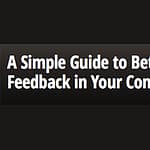In today’s volatile, uncertain, complex and ambiguous world, organisations must effectively engage their employees to aid individual, team and organisational development, as well as maintain productivity, profitability, and reduce the detrimental cost of turnover and absenteeism.
According to recent research conducted by the OECD and market researcher Gallup, three quarters of UK workers are not engaged. An issue evident across the globe with Gallup also reporting that a staggering 85% of employees are not engaged or actively disengaged at work.
Organisations are struggling to engage their employees and keep them motivated, which can lead employees to start ‘acting out.’ Particularly those who are activity disengaged as they express their unhappiness through counter-productive work behaviours.
One possible explanation for this could be a rising incidence of employee frustration. Research conducted by Ward et al. (2017) found that a concerning 82% of UK workers had experienced a frustrating event within their current role, and 79% had seen other workers become frustrated. Furthermore, 36% had left an organisation or job role since 2000 as a result of frustration at work.
Indeed, employee frustration can be extremely costly for individuals, teams and organisations, and has been found in past research to result in deviant work behaviours, personal aggression, withdrawal, as well as turnover (E.g. Spector 1978). It is of high importance therefore that frustration within organisations and the way in which it is communicated is fully understood, so that successful interventions can be developed to reduce frustration and engage our employees.
Ward et al. (2017) have begun to address this pressing issue, conducting exploratory research to identify the current sources of frustration at work and a range of coping strategies. Key sources included issues surrounding workplace behaviour and ethics, human factors and work design, workplace performance and productivity, and organisational processes and change. Interestingly, the coping strategies which became apparent included both productive and counter-productive behaviours. Specifically, avoidanceand aggressive copingand social and self-sufficient coping. Thus suggesting that frustration, as stated by Mowrer (1938:129), may not be ‘an unmitigated evil.’ It may lead to an increase in employee engagement, as well as disengagement. Identifying factors which influence an employee’s coping style is therefore paramount.
Research investigating the moderators and mediators in the relationship between the sources of frustration and individual coping strategies, including emotional intelligence and social support is currently being conducted by Ward et al. It is expected that this research will lead to the development of a new comprehensive model of work frustration, useful for researchers, practitioners and organisations in assessing and combating frustration at work. If you would like to contribute towards this research you can participate in the online questionnaire which should take around 20 minutes to complete.
If you would like more information please contact the author and lead researcher Sophie Ward via email.
Sophie Ward, BSc (Hons) MSc MBPsS AFHEA
Lecturer in Occupational and Business Psychology, Coventry University




